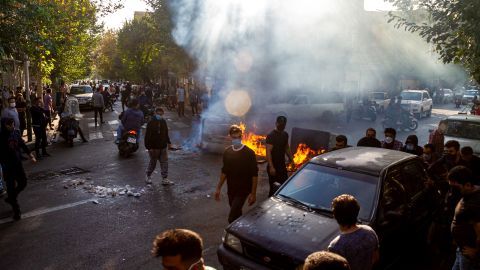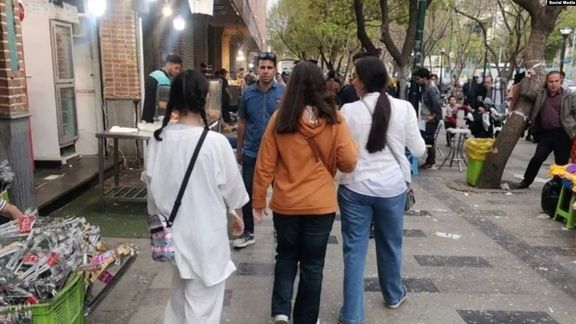Nighttime Protests Resume In Iran After Lull

Night time protests were back in Iran on Monday night after weeks of calm.

Night time protests were back in Iran on Monday night after weeks of calm.
Coinciding with international labor day, action was seen in several neighborhoods of the Iranian capital Tehran as well as the nearby city of Karaj and the central city of Esfahan (Isfahan).
Street protests -- which were held almost daily for a couple of months after the death of 22-year-old Mahsa Amini in police custody had dwindled in recent weeks after months of protests which saw more than 500 civilians killed and around 20,000 arrested.
Protesting against poor wages and inhumane working conditions, rallies saw thousands of workers gather. More than 100 oil, gas, petrochemical and other plants across the country have been staging strikes since April 22. The regime simultaneously stepped up arrests and indictment of union activists around the industrial action.
In Esfahan, protesters chanted slogans in support of workers and political prisoners with social media videos showing people expressing support for Tomaj Salehi, a rapper who has been detained since the early days of the current wave of protests. "We have come again, the uprising continues" and "The rule of turbans is over," they chanted.
In videos that surfaced on social media from the Monday night protests, dozens of women cast off their headscarves, with captions in which people made fun of the country’s head of police, who keeps warning hijab rebels that the protests would be over soon and those who unveil will continue to be prosecuted.
Since 22-year-old Mahsa Amini was beaten to death by hijab enforcers in September sparking a nationwide revolt, the simple act of unveiling in public has become a common occurrence across Iran, and a thorn in the side of the regime hardliners who are pushing for stricter measures.
Supreme Leader Ali Khamenei’s assertion Tuesday that flouting hijab is “religiously and politically haram” has prompted officials to signal harsher crackdown on those who unveil in public.
Following Khamenei’s cue, the ministry of interior in its second statement on hijab within a week, alleged that the opposition to compulsory hijab was an enemy plot advanced by foreign intelligence services and the opposition outside Iran, who through social media are trying to use it to “create deep social divides and a divide between the people and the government.”
The unrest since Amini’s killing by the police has made it increasingly difficult to enforce the mandatory Islamic dress code which has become a symbol of opposition against clerical rule.

Tweet unavailable